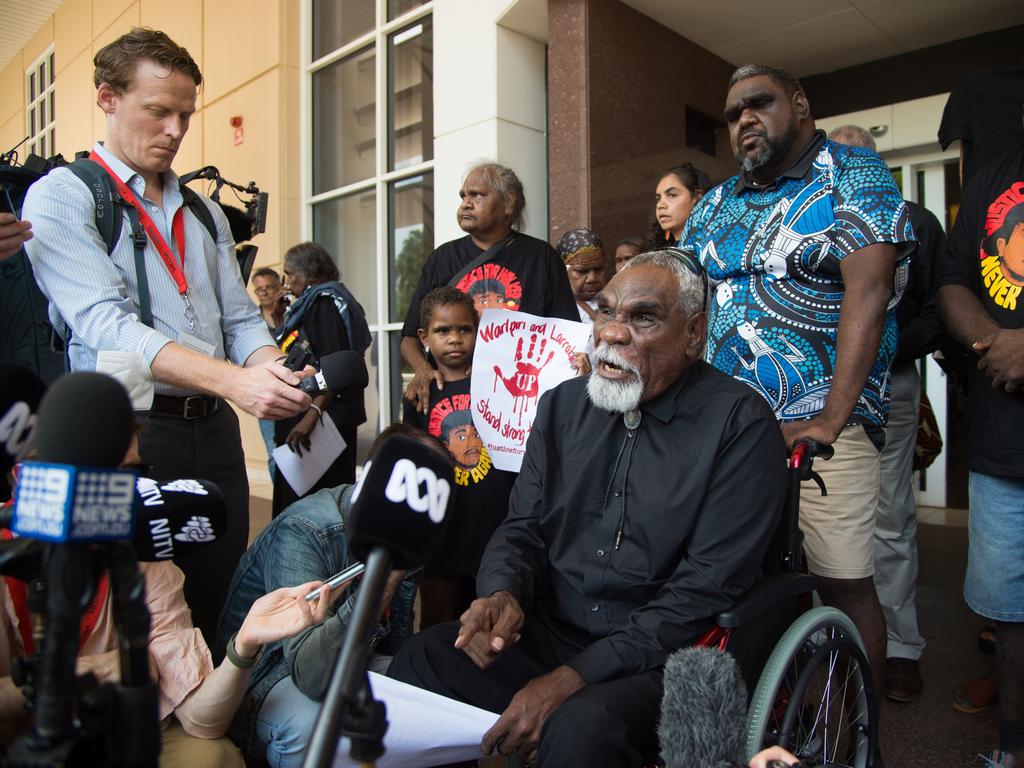The 2.6 seconds that determined guilt or innocence for constable
In the end, Zachary Rolfe’s guilt turned on the jury’s belief about what he perceived in 2.6 seconds.
In the end, it all came down to 2.6 seconds.
The jury in Constable Zachary Rolfe’s murder trial was fed chapter and verse about the events leading up to his fatal shooting of Aboriginal teenager Kumanjayi Walker.
But whether or not the young Northern Territory policeman followed his training, adhered to orders, exercised the best judgment or did everything he could to avoid violent conflict, it was not, in the timeline of events, until after Constable Rolfe had already shot Mr Walker once that prosecutors could suggest he broke the law.
The 12 jurors selected from the Greater Darwin region were told Mr Walker was “extremely violent” and his criminal behaviour had escalated from minor thefts to attacking police and his partner.
They were also told he was quiet, kind and fun-loving, knew he had done the wrong thing by brandishing an axe at two Yuendumu policemen in a Warlpiri “show of strength” three days before the shooting, and that he wanted to be arrested peacefully.
They were told Constable Rolfe was a brave and decorated young officer and former army veteran. They were also told he had paid for private weapons training, sought special forces entry and looked to get involved in “direct action” wherever he could.
They heard arresting Mr Walker was just another job for Constable Rolfe’s highly skilled Immediate Response Team. Alternatively, they were urged to believe he became “obsessed” with Mr Walker and agitated to “hunt” him down, prepared from the start to use lethal force if the mentally “slow” teenager showed any provocative resistance.
Whatever the jury made of the many contradictions in evidence, the construction of NT law means the most important question in determining Constable Rolfe’s guilt was one only he could reliably answer: what was in his mind when he fired?
Constable Rolfe shot Mr Walker once in the back after the latter inflicted a 3mm puncture to his shoulder using scissors. He fired twice more at close range into Mr Walker’s chest while fellow policeman Adam Eberl was attempting to “ground stabilise” Mr Walker on a mattress. Shot two came 2.6 seconds after shot one, and shot three 0.53 seconds later. The crown only argued shots two and three were murderous.
In summarising the case before the NT Supreme Court, Justice John Burns told the jurors the most important factual issues they might need to consider included if Mr Walker’s right arm and hand holding the scissors were “pinned” beneath his body at the time Constable Rolfe fired shots two and three and whether that was what he could see.
Constable Rolfe testified he shot Mr Walker believing that Sergeant Eberl was being potentially fatally stabbed. The crown argued that was implausible because there was no proof Sergeant Eberl was injured at all during the altercation and other evidence disproved Constable Rolfe’s testimony.
But Justice Burns explained what mattered the most was Constable Rolfe’s perception at the time he fired the fatal shots. For any of the three charges to be upheld, all 12 jurors needed to be convinced he “did not hold an honest belief” shooting was necessary to protect Sergeant Eberl.
The jurors also needed to be convinced firing was “not a reasonable response in the circumstances ...” Furthermore, they needed to be persuaded his conduct in firing the shots was “unreasonable in the circumstances ...” and that he “did not honestly believe he was acting in the performance of a duty or exercising a function as a police officer”.
The crown case about Constable Rolfe’s “state of mind” – his motivation and intent – was based on circumstantial evidence, meaning each juror needed to arrive via logic at the view no other reasonable conclusion could arise from the proven facts.
Defence lawyer David Edwardson QC argued from the start that the case was all about perception, and the crown would be unable to prove his client held any beliefs capable of rendering Mr Walker’s shooting illegal.
So it proved to be.




